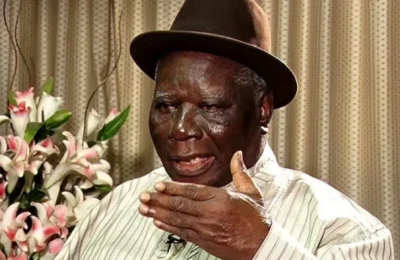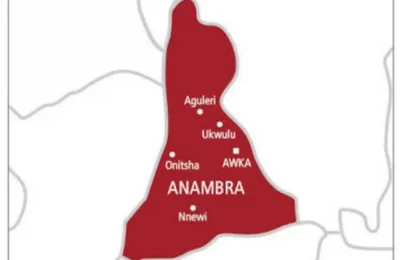
By Farooq Kperogi
AS with every language that leaves its primordial shores, the Hausa words that make it to Nigerian English are often contorted from their original forms and meanings. Here, I highlight 20 Nigerian English—and Nigerian Pidgin English— expressions that owe debts to the Hausa language.
- “Jaara.” Most speakers of Nigerian English recognize this word as an additional, often small, quantity that a merchant gives to a customer who purchases goods in the market as a show of appreciation for the customer’s business. It is derived from the Hausa “gyara.”

The word’s corruption to “jaara” in Nigerian (Pidgin) English) is a consequence of the absence of the Hausa phoneme “gy” in most Nigerian languages.
Interestingly, in the U.S. state of Louisiana, when I lived for almost two years before moving to Georgia, people use the term “lagniappe” (pronounced Lan-Yap) to signify what Hausa people call “gyara” and that Nigerian English speakers call “jaara.”
No other part of the United States has a culture of merchants giving a small gift to their customers after a transaction. I once speculated that the Louisiana “lagniappe” culture may be traceable to enslaved Hausa people in the state hundreds of years ago.
- “Babban riga.” The resplendent, broad-sleeved, flowing gown that has now become the attire of choice of Nigerian politicians of all ethnicities is often called “babban riga” in Nigerian English. It’s a slight distortion of “babbar riga,” its Hausa name.
- “Megad.” This Nigerian English word for what native English speakers call a door guard, a gatekeeper, a uniformed doorman, or a hall porter came to us from a distortion of the Hausa “maigadi,” itself a blend of the Hausa “mai” and the English “guard.”
The fact that most doorkeepers in Nigerian urban centers used to be—probably still are—Hausa or Hausa-speaking northerners helped to admit “megad” into the pantheon of unique Nigerian English expressions.
- “Buka.” This word now means a cheap, casual, ramshackle eatery that sells already prepared food. It came from the Hausa word “bukka,” which means a temporary, tumble-down hut or tent.
Since most roadside or dirt-cheap eateries in Nigeria used tents (many don’t these days), Nigerians neologized the word “bukateria” from “bukka” on the model of cafeteria, itself an American English word borrowed from Spanish.
- “Burantashi.” Most Nigerians know this word to be the Hausa word for an aphrodisiac, that is, the bitter herbal concoction that reputedly stimulates sexual desire in men. “Bura” is the Hausa word for the male reproductive organ and “tashi” is the Hausa word for rising, waking up, etc. Curiously, however, the word “buratashi” (which is probably how it would have been written in Hausa if it were a thing) is more used outside Hausa land than in Hausa land.
In everyday conversational Hausa, at least among Hausa Muslims, “bura” is rarely used except in vulgar insults such as “bura uban ka/ki” (which is now rendered as “borobanka” in some varieties of Nigerian Pidgin English).
I’m genuinely curious how “burantashi” came to be if it’s almost absent in the demotic repertoire of native Hausa speakers. Hausa people call aphrodisiacs “maganin karfin maza” or “gagi.”
- “Fadama.” This Hausa word for a fertile wetland is now a widely used terminology in agriculture in Nigeria and beyond.
- “Do guy.” To “do guy” in Nigerian English is to preen, to show off with elaborate sartorial care. That expression owes provenance to the Hausa “gayu,” where it means the same thing. A dandy is called “dan gaye” or “dan danyu” in Hausa.
But it seems like there is a circular sociolinguistic loop in the emergence of this expression from Hausa to Nigerian English. Since “gayu” itself doesn’t seem to be native to Hausa, it’s reasonable to assume that it’s a loan to the language from the English “guy.”
Guy means an adult male in English, and men who wore shirts and trousers (as opposed to the more common Hausa attires of kaftans and babbar riga) were referred to as “guys.” So, “guy” might have changed meaning from just being men attired in Western clothes to dandies, from where it made its way to Nigerian Pidgin English and later to Nigerian English to simply mean preening.
- “Long leg,” the Nigerian English idiomatic expression for connections (which even Wole Soyinka used in one of this iconic plays) is said to be the direct translation of the Hausa dogon-kafa. Dogon-kafa can mean long-established, and it can colloquially mean (unfair) advantages that come with knowing people in high places.
- “Kaya mata” or “kayamata” (which native Hausa speakers would write as “kayan mata”) has come to mean sexual stimulant for women and is now widely known by that name in southern Nigeria.
- “Mudu,” the unit of measurement that most Nigerians use in the market, is a Hausa word.
- To “see gobe” in southern Nigeria is to be in trouble, sometimes good trouble. It’s the title of Davido’s 2013 hit song. It may have been derived from the Hausa “sai gobe,” which literally translates as “until tomorrow.” I am also curious to know how the semantic transition occurred from “until tomorrow” to “being in trouble.”
- “Suya” literally means frying in Hausa, but it has become the name for barbecued meat in Nigeria, which Hausa people call “tsire.” Since most non-Hausa Nigerians can’t faithfully pronounce the phoneme “ts” in Hausa, it’s entirely possible that Hausa tsire sellers encouraged the popularization of suya, an easier word to pronounce among non-Hausa-speaking people.
- “Dogon yaro” (which literally means tall child) is the Hausa word for neem tree, but it is almost universally known by that name in Nigeria.
- “Wahala.” Although “wahala” is an Arabic word, it came to Nigerian (Pidgin) English most likely through Hausa. It’s derived from the Arabic “wahla,” which means fright or terror, and is now firmly established in most Nigerian languages—and in the West African Pidgin English spoken in Nigeria, Ghana, and Cameroon
- “Waaka.” In Nigerian Pidgin English, “waaka” is a popular insult often uttered in moments of extreme exasperation with all five fingers stretched out. It’s a corruption of the Hausa “uwar ka” (male) “uwar ki” (female). Uwa means “mother” in Hausa, so “uwar ka” is “your mother!”
- “Mugu.” Nigerian 419 email scammers popularized this expression in Nigeria and beyond. It is understood to mean a chump, that is, a fool who can easily be tricked to part with his or her prized possessions under false pretenses. But this meaning of the word departs from its original Hausa meaning of “sadist.” Now, mugu has other variations such as “maga.”
- “Haba!” This exclamation of astonishment or disappointment that has crept into Standard Nigerian English is native to the Hausa language. But a British linguist by the name of Roger Blench observed that “Habahaba! was a common expression of joking amazement in the US in the 1940s,” and wonders if there is any relationship between the Nigerian “haba!” and the obsolete American English “habahaba!” in light of the phono-semantic similarities between both expressions. I doubt that there is.
- “Shikenan” (often rendered as “shikena” in southern Nigeria), the Hausa term for “that is it,” is now almost universally used in Nigerian (Pidgin) English.
- “Shege.” This means bastard in Hausa, although it can also be used as an intensifier. It is now widely understood and used in the same context in Nigerian Pidgin English.
- “Zobo” (short for zoborodo), a kind of drink originally limited to Hausa land is now probably the most pan-Nigerian locally produced drink. It is sold in African shops in Europe and North America.
Bonus: Turenchi, usually dogo turenchi, (which would be turanci, dogon turanci in Hausa), is now widely used in Nigerian Pidgin English and in informal standard Nigerian English to mean long, boring, ineffective harangue in English by politicians and academics.
- This piece was first published on August 27, 2022.
READ ALSO FROM NIGERIAN TRIBUNE








